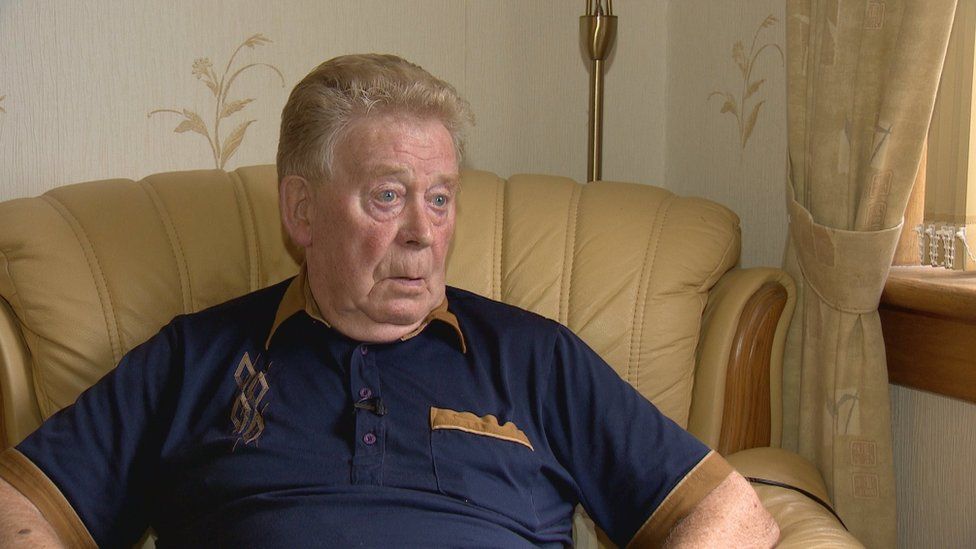Asbestos exposure has 'years-long' legacy say campaigners
- Published

Campaigners have called for greater support for victims of asbestos-related cancer who are fighting for civil compensation.
It comes as an Inverness sufferer claimed that his former employer was deliberately ignoring his correspondence.
James Nicol believes he was exposed to asbestos while working on council houses in the 1980s.
He wants Highland Council to acknowledge that he was exposed.
The local authority said it could not comment on Mr Nicol's case, adding that any claims would be handled by solicitors.
The 85-year-old worked for Highland Regional Council, now Highland Council, as a labourer.
He believes that he came into contact with asbestos while refurbishing council properties in Inverness. Mr Nicol also later worked for the regional council as a school janitor.
'No cure'
In March this year, the pensioner was diagnosed with mesothelioma, an incurable lung cancer almost always caused by asbestos exposure.
He said he had first noticed a change in his health during a swimming session.
"I could swim, but not the same speed and that was why I went to my doctor," Mr Nicol told BBC Scotland.
"I went to my GP and from then on it was x-rays, scans and a biopsy in Aberdeen."
Mr Nicol was given his diagnosis at his local hospital, Raigmore in Inverness. He said: "The consultant told me it was 'all bad, no cure Mr Nicol'."
While still in receipt of a local authority pension, he claims Highland Council has turned its back on him by failing to reply to correspondence from his solicitor on his condition.
A Highland Council spokesman said: "We cannot comment on this matter.
"However, we can confirm that where individuals appoint solicitors to make claims against Highland Council, communications would be made via the person's solicitor and not direct with the claimant."
'No windows'
The charity Clydeside Action on Asbestos was set up in 1984 and initially dealt with shipyard workers.
However, senior welfare rights officer and director Phyllis Craig said the charity was now increasingly seeing people from other areas of employment, and also more women.
She said: "We are seeing a lot of people from the construction industry and we are seeing teachers, nurses, doctors, policemen and firemen.
"Many of them had been exposed 20 years ago.
Ms Craig added: "There is a myth that women were only exposed to asbestos if they washed their husband's overalls."
She said women were just as prone to the risk of being exposed to asbestos fibres working in a building, such as a hospital or school, as their male colleagues were.
Law changes in Scotland give sufferers and their families north of the border more rights than anywhere else in the UK.
Some sufferers, such as former textile factory worker Annie McGhee from Motherwell, may be eligible for a one-off payment from the government.
She believes she was exposed to asbestos while working at a knitwear factory before she married and raised a family.
Mrs McGhee said: "It was the only place where I worked. I worked there for eight years solid.
"I worked in the steam presses and there were lots of big pipes up above and there were no windows in the place."
Two years ago this month, Mrs McGhee was diagnosed with terminal cancer following a year and half of experiencing shortness of breath because of fluid in her lungs.
The use of asbestos was banned in 1999 and campaigners warn that the legacy of the material will continue for decades yet with case numbers unlikely to peak for another 20 years.
- Published30 October 2014